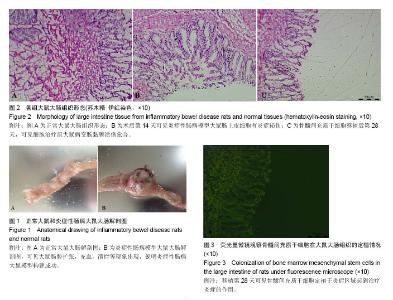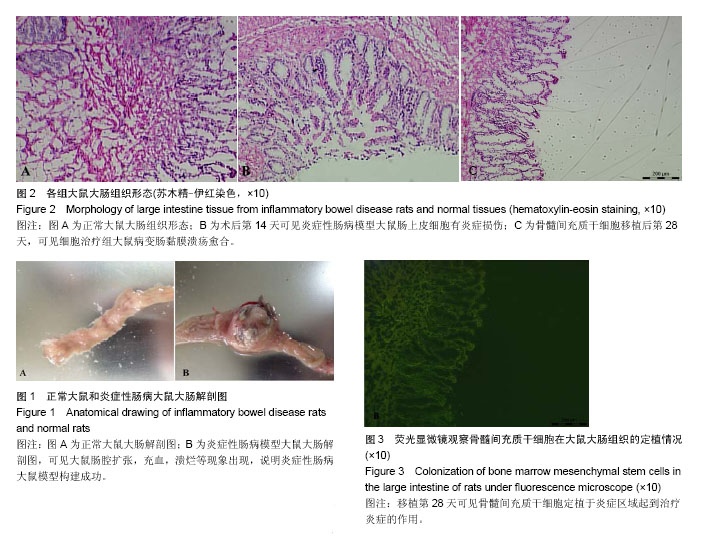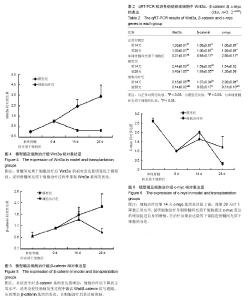| [1] Cahill RJ, Foltz CJ, Fox JG,et al.Inflammatory bowel disease: an immunity-mediated condition triggered by bacterial infection with Helicobacter hepaticus.Infect Immun. 1997; 65(8):3126-3131.
[2] Karlinger K, Györke T, Makö E,et al.The epidemiology and the pathogenesis of inflammatory bowel disease.Eur J Radiol. 2000;35(3):154-167.
[3] Podolsky DK.The future of IBD treatment.J Gastroenterol. 2003;38 Suppl 15:63-66.
[4] Chen M, Xia B, Chen B, et al.N-acetyltransferase 2 slow acetylator genotype associated with adverse effects of sulphasalazine in the treatment of inflammatory bowel disease.Can J Gastroenterol. 2007;21(3):155-158.
[5] Denadai R, Teixeira FV, Saad-Hossne R.The onset of psoriasis during the treatment of inflammatory bowel diseases with infliximab: should biological therapy be suspended?Arq Gastroenterol. 2012;49(2):172-176.
[6] Conklin LS, Cuffari C, Okazaki T,et al.6-Mercaptopurine transport in human lymphocytes: correlation with drug-induced cytotoxicity.J Dig Dis. 2012;13(2):82-93.
[7] Sarrazin S, Mossadegh-Keller N, Fukao T,et al.MafB restricts M-CSF-dependent myeloid commitment divisions of hematopoietic stem cells.Cell. 2009;138(2):300-313.
[8] Yabana T, Arimura Y, Tanaka H,et al.Enhancing epithelial engraftment of rat mesenchymal stem cells restores epithelial barrier integrity.J Pathol. 2009;218(3):350-359.
[9] Lazebnik LB, Konopliannikov AG, Kniazev OV, et al.Use of allogeneic mesenchymal stem cells in the treatment of intestinal inflammatory diseases.Ter Arkh. 2010;82(2):38-43.
[10] Nemoto Y, Kanai T, Takahara M,et al.Bone marrow -mesenchymal stem cells are a major source of interleukin-7 and sustain colitis by forming the niche for colitogenic CD4 memory T cells.Gut. 2013;62(8):1142-1152.
[11] Sémont A, Demarquay C, Bessout R,et al.Mesenchymal stem cell therapy stimulates endogenous host progenitor cells to improve colonic epithelial regeneration.PLoS One. 2013;8(7): e70170.
[12] Sato Y, Araki H, Kato J,et al.Human mesenchymal stem cells xenografted directly to rat liver are differentiated into human hepatocytes without fusion.Blood. 2005;106(2):756-763.
[13] Hayashi Y, Tsuji S, Tsujii M,et al.Topical implantation of mesenchymal stem cells has beneficial effects on healing of experimental colitis in rats.J Pharmacol Exp Ther. 2008; 326(2): 523-531.
[14] 魏亚明,聂玉强,李瑜元,等.炎症性肠病及其干细胞移植再生修复[J].世界华人消化杂志, 2006,14(13):1314-1317.
[15] 李瑜元,聂玉强,赖洁莹,等.干细胞移植对大鼠实验性结肠炎的实验研究[J].中华消化杂志, 2008, 28(6):364-368.
[16] Horvay K, Abud HE. Regulation of intestinal stem cells by Wnt and Notch signalling.Adv Exp Med Biol. 2013;786:175-186.
[17] Clevers H.Wnt/beta-catenin signaling in development and disease.Cell. 2006;127(3):469-480.
[18] 段征,徐艳华,陈小云,等.间充质干细胞移植后在溃疡性结肠炎大鼠体内的迁移[J].重庆医科大学学报, 2010, 35(8):1152-1155.
[19] 赖洁莹,李瑜元,魏亚明,等.骨髓造血细胞移植治疗克罗恩病的动物研究[J].广州医学院学报,2006, 34(6):1-4.
[20] Wei Y, Nie Y, Lai J,et al.Comparison of the population capacity of hematopoietic and mesenchymal stem cells in experimental colitis rat model.Transplantation. 2009;88(1):42-48.
[21] Vanuytsel T, Senger S, Fasano A,et al.Major signaling pathways in intestinal stem cells.Biochim Biophys Acta. 2013; 1830(2):2410-2426.
[22] Neth P, Ciccarella M, Egea V,et al.Wnt signaling regulates the invasion capacity of human mesenchymal stem cells.Stem Cells. 2006;24(8):1892-1903. |



